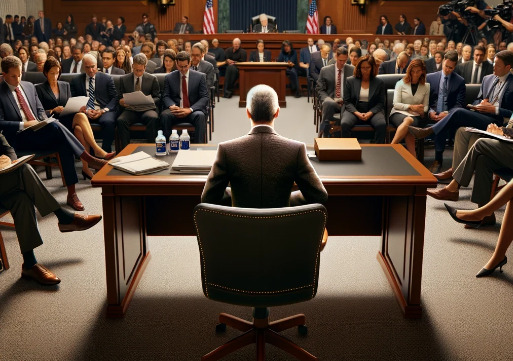
Clean Hands.
A game of politics and friendship.
Clean Hands is a card game for 4-8 players aged 12 and up, in which each player controls part of the political landscape. Using diplomacy and cunning, players wield their political influence to shape the Cabinet, whose Members stand ready to take bribes, kickbacks, and emoluments, or to pilfer public money by passing laws, decrees, and executive orders for well-heeled clients. Players without influence may hamstring the Cabinet by launching investigations, leading to indictments or impeachments, embarrassing Cabinet Members and sometimes forcing them to resign. Cooperation is necessary to get ahead, but beware! Treason always lies in wait, and alliances may change at the drop of a hat.

Objective
Gain the most wealth through strategic use of political influence, bribes, and manipulation.
Setup
- The
General Election andSell State Secrets cards are placed face up to start the Action and Profit discard piles. - Each player is dealt Caucus cards (face up), 2 cards from the Action deck (in hand), and 4 cards from the Profit deck (in hand).
- All Caucus cards are distributed. The Action deck and Profit deck form two separate draw piles.
- The player with the most votes in Congress from their Caucus cards gets the President. That player distributes Secretary cards at will.
- Congress votes to approve or deny the proposed distribution of Secretaries.

Turn order
Cash In
Collect Profit cards from your Cabinet Members who are not under Investigation.
Executive Powers
The President may remove one Investigation card.
Play
Play any number of Action or Profit cards on yourself or opponents.
Draw
Draw two cards from the decks.

Basic rules
- Most cards explain themselves.
- Taking turns and voting occurs clockwise.
- Unless otherwise noted, all cards can be played on all players.
- If the effect of a card is denied by a vote, it is discarded.
- You may hold any number of cards.
- Never show anyone the cards you hold.
- You may play any number of cards during your turn.
Voting
- In Cabinet votes, Cabinet Members under Investigation do not vote.
- In Congress votes, identical Caucus cards are multiplied by their number, so three copies of a 1-vote card are worth 3 votes each.
- Votes are decided by majority. In a tied vote, the President decides.
- In all other ties, the player whose turn came first is considered to be the "largest."

End of game
The game ends immediately when the